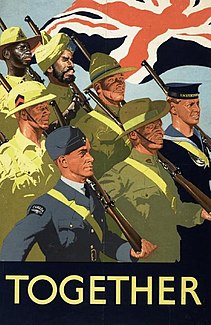 W
WWhen the United Kingdom declared war on Nazi Germany in September 1939 at the start of World War II, the UK controlled to varying degrees numerous crown colonies, protectorates and the Indian Empire. It also maintained unique political ties to four of the five independent Dominions—Australia, Canada, South Africa, and New Zealand—as co-members of the then "British Commonwealth". In 1939 the British Empire and the Commonwealth together comprised a global power, with direct or de facto political and economic control of 25% of the world's population, and of 30% of its land mass.
 W
WAfter the outbreak of the Second World War, in the British Crown Colony of Ceylon, the government of Sir Don Baron Jayatilaka assured the British king and his majesty's government of its continued support.
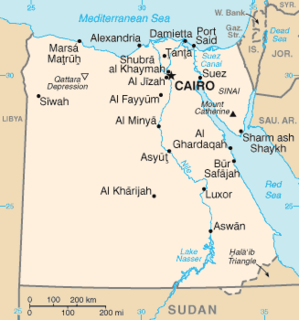 W
WIn 1882, Egypt was occupied by the United Kingdom, following the Orabi Revolt against the Egyptian khedive. The Kingdom of Egypt was essentially under British control thereafter, even after the formal recognition of Egyptian independence in 1922, with British troops remaining around the Suez Canal zone. Full Egyptian self-rule was not realised until the Egyptian Revolution of 1952.
 W
WThe involvement of the Gold Coast in World War II began with the declaration of war on Nazi Germany by the British Empire in September, 1939. Though no combat occurred in the Gold Coast colony, the colony supplied resources and manpower for the Allies.
 W
WDuring the Second World War (1939–1945), India was controlled by the United Kingdom, with the British holding territories in India that included over six hundred autonomous Princely States. British India officially declared war on Nazi Germany in September 1939. The British Raj, as part of the Allied Nations, sent over two and a half million soldiers to fight under British command against the Axis powers. India also provided the base for American operations in support of China in the China Burma India Theater.
 W
WThe involvement of the British Colony of Kenya in World War II began with the declaration of war on Nazi Germany by the British Empire in September 1939.
 W
WCanada during World War II begins with the German invasion of Poland on 1 September 1939. While the Canadian Armed Forces were eventually active in nearly every theatre of war, most combat was centred in Italy, Northwestern Europe, and the North Atlantic. In all, some 1.1 million Canadians served in the Canadian Army, Royal Canadian Navy, Royal Canadian Air Force, and in forces across the Commonwealth, with approximately 42,000 killed and another 55,000 wounded. During the war, Canada was subject to direct attack in the Battle of the St. Lawrence, and in the shelling of a lighthouse at Estevan Point in British Columbia.
 W
WFollowing the German invasion of Poland, the Kingdom of Nepal declared war on Germany on September 4, 1939. Once Japan entered the conflict, sixteen battalions of the Royal Nepalese Army fought on the Burmese front. In addition to military support, Nepal contributed guns, equipment as well as hundreds of thousands of pounds of tea, sugar and raw materials such as timber to the Allied war effort.
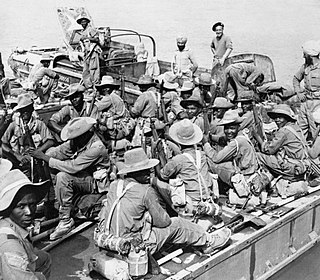 W
WThe involvement of the Nyasaland Protectorate in World War II began with the declaration of war on Nazi Germany by the British Empire in September 1939. Though no combat occurred in Nyasaland itself, it remained an economic asset for the Allies and also contributed a significant number of soldiers to fight in the British Army.
 W
WSouthern Rhodesia, then a self-governing colony of the United Kingdom, entered World War II along with Britain shortly after the invasion of Poland in 1939. By the war's end, 26,121 Southern Rhodesians of all races had served in the armed forces, 8,390 of them overseas, operating in the European theatre, the Mediterranean and Middle East theatre, East Africa, Burma and elsewhere. The territory's most important contribution to the war is commonly held to be its contribution to the Empire Air Training Scheme (EATS), under which 8,235 British, Commonwealth and Allied airmen were trained in Southern Rhodesian flying schools. The colony's operational casualties numbered 916 killed and 483 wounded of all races.
 W
WThe Bombay explosion occurred on 14 April 1944, in the Victoria Dock of Bombay when the freighter SS Fort Stikine, carrying a mixed cargo of cotton bales, gold, and ammunition including around 1,400 tons of explosives, caught fire and was destroyed in two giant blasts, scattering debris, sinking surrounding ships and setting fire to the area, killing around 800 to 1,300 people. Some 80,000 people were made homeless and 71 firemen lost their lives in the aftermath.
 W
WThe African and Caribbean War Memorial in Brixton, London, is the United Kingdom's national memorial to African and Caribbean service personnel who fought in the First and Second World Wars. It originated with a project for a memorial to Caribbean Royal Air Force veterans of World War II who arrived in Britain in 1948 on the MV Empire Windrush; this was an extension of the commemorative plaque and sculpture scheme run by the Nubian Jak Community Trust to highlight the historic contributions of Black and minority ethnic people in Britain. The memorial was originally to have been placed at Tilbury Docks, as part of the commemoration for the centenary of the outbreak of World War I. However, as the project began to evolve into a larger tribute that included both World Wars and commemorated servicemen and women from both Africa and the Caribbean, it was agreed by the memorial recipient – the Port of Tilbury – and the project organisers that a new, more accessible location needed to found. The memorial was ultimately permanently installed and unveiled on 22 June 2017 in Windrush Square, Brixton.
 W
WThe Anglo-Egyptian Sudan was a condominium of the United Kingdom and Egypt in the Sudans region of northern Africa between 1899 and 1956, corresponding mostly to the territory of present day Sudan and South Sudan. Legally, sovereignty and administration were shared between both Egypt and the United Kingdom, but in practice the structure of the condominium ensured effective British control over Sudan, with Egypt having limited, local power influence in reality. Following the Egyptian Revolution of 1952, Egypt pushed for an end to the condominium, and the independence of Sudan. By agreement between Egypt and the United Kingdom in 1953, Sudan was granted independence as the Republic of the Sudan on 1 January 1956. In 2011, the south of Sudan itself became independent as the Republic of South Sudan.
 W
WThe Atlantic Charter was a statement issued on 14 August 1941 that set out American and British goals for the world after the end of World War II. The joint statement, later dubbed the Atlantic Charter, outlined the aims of the United States and the United Kingdom for the postwar world as follows: no territorial aggrandizement, no territorial changes made against the wishes of the people (self-determination), restoration of self-government to those deprived of it, reduction of trade restrictions, global co-operation to secure better economic and social conditions for all, freedom from fear and want, freedom of the seas, and abandonment of the use of force, and disarmament of aggressor nations. The charter's adherents signed the Declaration by United Nations on 1 January 1942, which was the basis for the modern United Nations.
 W
WClement Richard Attlee, 1st Earl Attlee, was a British politician who served as Prime Minister of the United Kingdom from 1945 to 1951 and Leader of the Labour Party from 1935 to 1955. He was Deputy Prime Minister during the wartime coalition government under Winston Churchill, and served twice as Leader of the Opposition from 1935 to 1940 and from 1951 to 1955.
 W
WThe Empire Air Training Scheme (EATS) was a policy designed to train Royal Australian Air Force pilots for eventual transfer into the Royal Air Force during World War II. The policy, dubbed the Empire Air Training Scheme in Australia, was envisioned after the British Empire was unable to supply enough pilots and aircraft for the Royal Air force. In Australia the scheme would eventually branch out and provide the training of pilots for deployment in the Pacific War.
 W
WThe George Cross was awarded to the island of Malta by King George VI in a letter to the island's Governor, Lieutenant-General Sir William Dobbie, so as to "bear witness to the heroism and devotion of its people" during the great siege they underwent in the early part of World War II. Italy and Germany besieged Malta, then a British colony, from 1940 to 1942. The George Cross was incorporated into the flag of Malta beginning in 1943 and remains on the current design of the flag.
 W
WField Marshal Alan Francis Brooke, 1st Viscount Alanbrooke, & Bar, was a senior officer of the British Army. He was Chief of the Imperial General Staff (CIGS), the professional head of the British Army, during the Second World War, and was promoted to field marshal on 1 January 1944. As chairman of the Chiefs of Staff Committee, Brooke was the foremost military advisor to Winston Churchill, the British Prime Minister, and had the role of co-ordinator of the British military efforts in the Allies' victory in 1945. After retiring from the British Army, he served as Lord High Constable of England during the Coronation of Queen Elizabeth II in 1953. His war diaries attracted attention for their criticism of Churchill and for Brooke's forthright views on other leading figures of the war.
 W
WThe BBC World Service is an international broadcaster owned and operated by the BBC. It is the world's largest of any kind. It broadcasts radio news, speech and discussions in more than 40 languages to many parts of the world on analogue and digital shortwave platforms, internet streaming, podcasting, satellite, DAB, FM and MW relays. In 2015, the World Service reached an average of 210 million people a week. In November 2016, the BBC announced that it would start broadcasting in additional languages including Amharic and Igbo, in its biggest expansion since the 1940s.
 W
WThe BBC World Service is an international broadcaster owned and operated by the BBC. It is the world's largest of any kind. It broadcasts radio news, speech and discussions in more than 40 languages to many parts of the world on analogue and digital shortwave platforms, internet streaming, podcasting, satellite, DAB, FM and MW relays. In 2015, the World Service reached an average of 210 million people a week. In November 2016, the BBC announced that it would start broadcasting in additional languages including Amharic and Igbo, in its biggest expansion since the 1940s.
 W
WThe Bengal famine of 1943 was a famine in the Bengal province of British India during World War II. An estimated 2.1–3 million, out of a population of 60.3 million, died of starvation, malaria, and other diseases aggravated by malnutrition, population displacement, unsanitary conditions and lack of health care. Millions were impoverished as the crisis overwhelmed large segments of the economy and catastrophically disrupted the social fabric. Eventually, families disintegrated; men sold their small farms and left home to look for work or to join the British Indian Army, and women and children became homeless migrants, often travelling to Calcutta or other large cities in search of organised relief. Historians usually characterise the famine as anthropogenic (man-made), asserting that wartime colonial policies created and then exacerbated the crisis. A minority view holds, however, that the famine was the result of natural causes.
 W
WBethnal Green is a London Underground station in Bethnal Green, London, served by the Central line. It lies between Liverpool Street and Mile End stations, is in Travelcard Zone 2, and is open 24 hours on a Friday and Saturday as part of the Night Tube service. The station was opened as part of the long planned Central line eastern extension on 4 December 1946, having previously been used as an air-raid shelter. On 3 March 1943, 173 people, including 62 children, were killed in a crush while attempting to enter the shelter, in what is believed to be the largest loss of civilian life in the UK during the Second World War.
 W
WSubhas Chandra Bose was an Indian nationalist whose defiant patriotism made him a hero in India, but whose attempts during World War II to rid India of British rule with the help of Nazi Germany and Imperial Japan left a troubled legacy. The honorific Netaji was first applied to Bose in Germany in early 1942—by the Indian soldiers of the Indische Legion and by the German and Indian officials in the Special Bureau for India in Berlin. It is now used throughout India.
 W
WThis is a list of World War II conferences of the Allies of World War II. Conference names in boldface indicate the conferences at which the leaders of the United States, the United Kingdom, and the Soviet Union were all present. For the historical context see Diplomatic history of World War II.
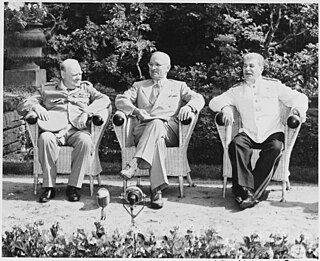 W
WThe Potsdam Conference was held in Potsdam, Germany, from July 17 to August 2, 1945. The participants were the Soviet Union, the United Kingdom, and the United States, which were represented respectively by Premier Joseph Stalin, Prime Ministers Winston Churchill and Clement Attlee, and President Harry S. Truman. They gathered to decide how to administer Germany, which had agreed to an unconditional surrender nine weeks earlier, on the 8 May. The goals of the conference also included establishing the postwar order, solving issues on the peace treaty, and countering the effects of the war.
 W
WCaribbean Voices was a radio programme broadcast by the BBC World Service from Bush House in London, England, between 1943 and 1958. It is considered "the programme in which West Indian literary talents first found their voice, in the early 1950s." Caribbean Voices nurtured many writers who went on to wider acclaim, including Samuel Selvon, Edward Kamau Brathwaite, V. S. Naipaul, Derek Walcott, John Figueroa, Andrew Salkey, Michael Anthony, Edgar Mittelholzer, Sylvia Wynter, and others.
 W
WArthur Neville Chamberlain was a British politician of the Conservative Party who served as Prime Minister of the United Kingdom from May 1937 to May 1940. He is best known for his foreign policy of appeasement, and in particular for his signing of the Munich Agreement on 30 September 1938, conceding the German-speaking Sudetenland region of Czechoslovakia to Germany. Following the German invasion of Poland on 1 September 1939, which marked the beginning of World War II, Chamberlain announced the declaration of war on Germany two days later and led the United Kingdom through the first eight months of the war until his resignation as prime minister on 10 May 1940.
 W
WSir Winston Leonard Spencer Churchill, was a British statesman who served as Prime Minister of the United Kingdom from 1940 to 1945, during the Second World War, and again from 1951 to 1955. Although best known for his wartime leadership as Prime Minister, Churchill was also a Sandhurst-educated soldier, a Nobel Prize-winning writer and historian, a prolific painter, and one of the longest-serving politicians in British history. Apart from two years between 1922 and 1924, he was a Member of Parliament (MP) from 1900 to 1964 and represented a total of five constituencies. Ideologically an economic liberal and imperialist, he was for most of his career a member of the Conservative Party, which he led from 1940 to 1955, though he was a member of the Liberal Party from 1904 to 1924.
 W
WChurchill's Secret War: The British Empire and the Ravaging of India during World War II is a book by Madhusree Mukerjee about the Bengal famine of 1943 during the period of British rule in India. It was published in August 2010 by Basic Books of New York, and later that month by Tranquebar Press of Chennai. The book examines the role in the famine, and subsequent partition of India in 1947, of Prime Minister Winston Churchill.
 W
WThe 1944 Commonwealth Prime Ministers' Conference was the first Meeting of the Heads of Government of the British Commonwealth. It was held in the United Kingdom, between 1–16 May 1944, and was hosted by that country's Prime Minister, Winston Churchill.
 W
WThe 1946 Commonwealth Prime Ministers' Conference was the second Meeting of the Heads of Government of the British Commonwealth. It was held in the United Kingdom in from April to May 1946, and was hosted by that country's Prime Minister, Clement Attlee.
 W
WThe Declaration by United Nations was the main treaty that formalized the Allies of World War II and was signed by 47 national governments between 1942 and 1945. On New Year's Day 1942, during the Arcadia Conference, the Allied "Big Four" signed a short document which later came to be known as the United Nations Declaration, and the next day the representatives of 22 other nations added their signatures.
 W
WField Marshal Sir John Greer Dill, was a senior British Army officer with service in both the First World War and the Second World War. From May 1940 to December 1941 he was the Chief of the Imperial General Staff (CIGS), the professional head of the British Army, and subsequently in Washington, D.C., as Chief of the British Joint Staff Mission and then Senior British Representative on the Combined Chiefs of Staff (CCS), played a significant role during the Second World War in the formation of the "Special Relationship" between the United Kingdom and the United States.
 W
WThe British Government's decision to enforce a mass evacuation of the civilian population during the Second World War from the Crown colony of Gibraltar, in order to increase the strength of The Rock with more British Armed Forces personnel, meant that most Gibraltarians were forced to be away from Gibraltar and did not have a place they considered to be home. Only those civilians with essential jobs were allowed to stay. However, this event gave the entire community a heightened sense of "Britishness" by sharing in the war effort.
 W
WA Franco-British Union is a concept for a union between the two independent sovereign states of the United Kingdom and France. Such a union was proposed during certain crises of the 20th century; it has some historical precedents.
 W
WThe Czechoslovak government-in-exile, sometimes styled officially as the Provisional Government of Czechoslovakia, was an informal title conferred upon the Czechoslovak National Liberation Committee, initially by British diplomatic recognition. The name came to be used by other World War II Allies as they subsequently recognised it. The committee was originally created by the former Czechoslovak President, Edvard Beneš in Paris, France, in October 1939. Unsuccessful negotiations with France for diplomatic status, as well as the impending Nazi occupation of France, forced the committee to withdraw to London in 1940. The Czechoslovak Government-in-Exile offices were at various locations in London but mainly at a building called Fursecroft.
 W
WThe Dutch government in exile, also known as the London Cabinet, was the government in exile of the Netherlands, headed by Queen Wilhelmina, that fled to London after the German invasion of the country during World War II on 10 May 1940.
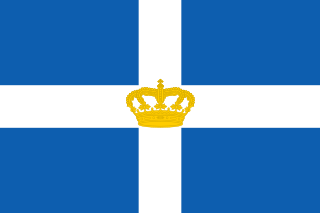 W
WThe Greek government-in-exile was formed in 1941, in the aftermath of the Battle of Greece and the subsequent occupation of Greece by Nazi Germany and Fascist Italy. The government-in-exile was based in Cairo, Egypt, and hence it is also referred to as the "Cairo Government". It was the internationally recognised government during the years of the Axis occupation of Greece.
 W
WThe Polish government-in-exile, officially known as the Government of the Republic of Poland in exile, was the government in exile of Poland formed in the aftermath of the Invasion of Poland of September 1939, and the subsequent occupation of Poland by Germany and the Soviet Union, which brought to an end the Second Polish Republic.
 W
WMohandas Karamchand Gandhi, mostly venerated as Mahātmā, was an Indian lawyer, anti-colonial nationalist and political ethicist who employed nonviolent resistance to lead the successful campaign for India's independence from British rule and in turn inspired movements for civil rights and freedom across the world. The honorific title Mahātmā, first applied to him in 1914 in South Africa, is now used throughout the world.
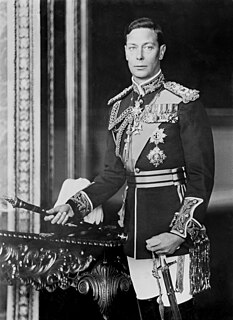 W
WGeorge VI was King of the United Kingdom and the Dominions of the British Commonwealth from 11 December 1936 until his death in 1952. He was concurrently the last Emperor of India until August 1947, when the British Raj was dissolved.
 W
WField Marshal William Edmund Ironside, 1st Baron Ironside, was a senior officer of the British Army, who served as Chief of the Imperial General Staff during the first year of the Second World War.
 W
WThe declaration of war by the Empire of Japan on the United States and the British Empire (米國及英國ニ對スル宣戰ノ詔書) was published on December 8, 1941, 7.5 hours after Japanese forces started an attack on the United States naval base at Pearl Harbor and attacks on British forces in Malaya, Singapore, and Hong Kong. The declaration of war was printed on the front page of all Japanese newspapers' evening editions on December 8. The document was subsequently printed again on the eighth day of each month throughout the war, to re-affirm the resolve for the war.
 W
WPrince George, Duke of Kent, was a member of the British royal family, the fourth son of King George V and Queen Mary. He was a younger brother of Edward VIII and George VI.
 W
WJohn Maynard Keynes, 1st Baron Keynes, was an English economist, whose ideas fundamentally changed the theory and practice of macroeconomics and the economic policies of governments. Originally trained in mathematics, he built on and greatly refined earlier work on the causes of business cycles. One of the most influential economists of the 20th century, his ideas are the basis for the school of thought known as Keynesian economics, and its various offshoots.
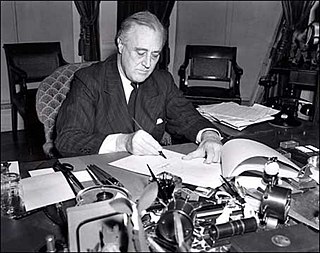 W
WThe Lend-Lease policy, formally titled An Act to Promote the Defense of the United States, was a program under which the United States supplied the United Kingdom, Free France, the Republic of China, and later the Soviet Union and other Allied nations with food, oil, and materiel between 1941 and 1945. This included warships and warplanes, along with other weaponry. It was signed into law on March 11, 1941, and ended on September 20, 1945. In general, the aid was free, although some hardware were returned after the war. In return, the U.S. was given leases on army and naval bases in Allied territory during the war. Canada operated a similar smaller program called Mutual Aid.
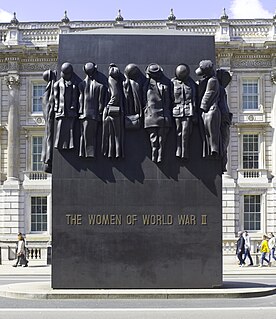 W
WThe Monument to the Women of World War II is a British national war memorial situated on Whitehall in London, to the north of the Cenotaph. It was sculpted by John W. Mills, unveiled by Queen Elizabeth II and dedicated by Baroness Boothroyd in July 2005.
 W
WAdmiral of the Fleet Louis Francis Albert Victor Nicholas Mountbatten, 1st Earl Mountbatten of Burma, was a member of British royal family, Royal Navy officer and statesman, a maternal uncle of Prince Philip, Duke of Edinburgh, and second cousin once removed of Queen Elizabeth II. During the Second World War, he was Supreme Allied Commander, South East Asia Command. He was the last Viceroy of India of British India, and the first governor-general of the Dominion of India.
 W
WThe Pakistan Movement was a political movement in the first half of the 20th century that aimed for and succeeded in the creation of the Dominion of Pakistan from the Muslim-majority areas of British India. It was connected to the perceived need for self-determination for Muslims under British rule at the time.
 W
WThe Patria disaster was the sinking on 25 November 1940 by the Jewish paramilitary organization Haganah of a French-built ocean liner, the 11,885-ton SS Patria, in the port of Haifa, killing 267 people and injuring 172.
 W
WThe Quit India Movement, also known as the August Movement, was a movement launched at the Bombay session of the All India Congress Committee by Mahatma Gandhi on 8 August 1942, during World War II, demanding an end to British rule in India.
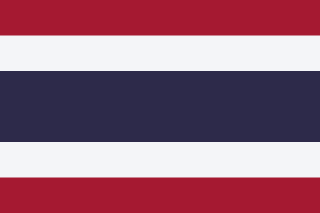 W
WSaharat Thai Doem was an administrative division of Thailand. It encompassed parts of the Shan States of British Burma annexed by the Thai government after the Japanese conquest of Burma.
 W
WThe Second Great Fire of London in December 1940 was one of the most destructive air raids of the Blitz during World War II. The Luftwaffe raid caused fires over an area greater than that of the Great Fire of London in 1666, leading one American correspondent to say in a cable to his office that "The second Great Fire of London has begun". Fires started by the raid included an incendiary bomb that broke through the dome of St Paul's Cathedral, which was being guarded by a fire watch team at the behest of the Prime Minister Winston Churchill.
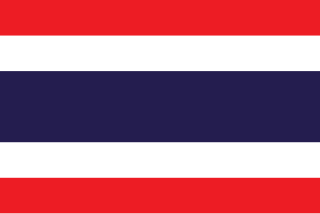 W
WSi Rat Malai is a former administrative division of Thailand. It included the four northern states of Kedah, Perlis, Kelantan, and Terengganu in British Malaya annexed by the Axis-aligned Thai government after the Japanese invasion of Malaya.
 W
WWładysław Sikorski's death controversy revolves around the death of the commander-in-chief of the Polish Army and Prime Minister of the Polish government in exile, General Władysław Sikorski, in the 1943 B-24 crash in Gibraltar. Sikorski's Liberator II crashed off Gibraltar almost immediately after takeoff, with the plane's pilot being the only survivor. The catastrophe, while officially classified as an accident, has led to several conspiracy theories that persist to this day, and often propose that the crash was an assassination, which has variously been blamed on the Soviets, British, and even Nazis. The incident is still described by some historians as mysterious and was investigated by the Polish Institute of National Remembrance. They concluded that the injuries sustained were consistent with a plane crash and that there was not enough evidence to support or reject the theory that the plane was deliberately sabotaged.
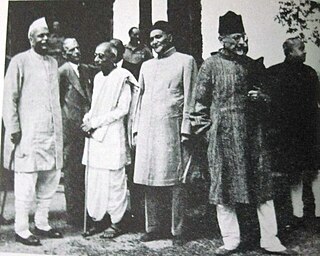 W
WThe Simla Conference of 1945 was a meeting between the Viceroy of India Lord Wavell and the major political leaders of British India at the Viceregal Lodge in Simla. Convened to agree on and approve the Wavell Plan for Indian self-government, and there it reached a potential agreement for the self-rule of India that provided separate representation for Muslims and reduced majority powers for both communities in their majority regions.
 W
WThe sterling area was a group of countries that either pegged their currencies to the pound sterling, or actually used the pound as their own currency.
 W
WDuring the Second World War (1939–1945), the Gambia was part of the British Empire as the Gambia Colony and Protectorate. At the outbreak of war between the British Empire and Nazi Germany in September 1939, the Gambia was home to the Gambia Company of the Royal West African Frontier Force (RWAFF).
 W
WThe White Paper of 1939 was a policy paper issued by the British government, led by Neville Chamberlain, in response to the 1936–1939 Arab revolt in Palestine. After its formal approval in the House of Commons on 23 May 1939, it acted as the governing policy for Mandatory Palestine from 1939 to the 1948 British departure. After the war, the Mandate was referred to the United Nations.